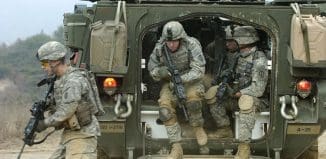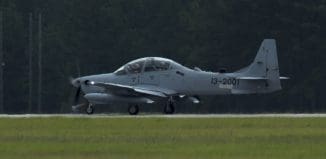Brazil and Pakistan expanding defense relations – where does this leave Israel?
This post is also available in:  עברית (Hebrew)
עברית (Hebrew)

Israeli defense sources say that there must be “a close look” at the new defense ties between Brazil and Pakistan. Israel, in recent years has increased its defense export to Brazil. Now however, Brazil and Pakistan have begun to explore ways to expand their industrial defense relations. This according to Defense News.
The move could broaden the market for Brazilian arms and help Pakistan widen the range of its defense suppliers, analysts said. Brazil’s ambassador to Pakistan, Alfredo Leoni, and Pakistan’s federal minister for defense production, Tanveer Hussain, met in early August to discuss the increased cooperation. “The scope of relations between the two countries is quite vast. The need is to collaborate, extend support and establish relations in areas of defense production,” Leoni told the Associated Press of Pakistan.
Brazil has a generally more high-tech defense industry than Pakistan, but observers say greater industry cooperation could be mutually beneficial. “Brazil-Pakistan defense ties seem to be driven by a commercial interest, but have a broader political-strategic side,” said Antônio Sampaio, a research analyst for Latin American issues at the International Institute for Strategic Studies. “Brazilian interest in the Pakistani defense market fits into Brasilia’s broad strategy of securing buyers for the country’s growing defense industry,” he said, which is “a strategic priority to stimulate a technologically advanced base for economic growth.”
New programs such as the Embraer-led KC-390 airlifter give Brazil a pressing reason to expand its markets, Sampaio said. Pakistan is also “a key emerging country, acting in several international arenas that Brazil sees as strategically important for its foreign goals,” he said. Improving commercial and political ties with such states “is a key objective as [Brazil] seeks a greater influence in world affairs,” he said. “In this front, the sheer volume of trade between Brazil and Pakistan is considered low (less than US $300 million in 2012), although it has grown rapidly in recent years.”
iHLS – Israel Homeland Security
Trevor Taylor, a professorial fellow at the Royal United Services Institute and expert in defense industries, said it is natural for the two countries to improve defense relations. “Pakistan is not under any UN or EU conventional arms embargo and there is therefore no reason why Brazil, which is trying to build a significant range of defense industrial capabilities with only a limited national defense budget, should not seek to market in Pakistan,” he said. “Brazil will presumably be wary, however, of offering things that might put at risk its nuclear submarine cooperation with France and the success of its commercial aircraft business in Western markets.”
Taylor thinks Pakistan’s motives are more straightforward: “Pakistan for its part must be interested in widening its range of defense suppliers while not damaging its ties with China.”
Pakistan’s most high-profile purchase from Brazil thus far is a 2008 deal for 100 Mectron MAR-1 anti-radiation missiles to equip Pakistan’s Mirage and JF-17 Thunder fighter aircraft. Deliveries are underway and the missile has already been integrated onto Mirage.
Usman Shabbir, an analyst with the Pakistan Military Consortium, said another missile may be in Pakistan’s sights already. “I am sure we will see the A-Darter short-range missile in [Pakistan Air Force] service once production commences in 2014,” he said. The missile is being developed by Mectron in cooperation with South Africa’s Denel Dynamics. Shabbir said it may be some time, however, before Brazil can offer a greater variety of defense products that would interest Pakistan. “Pakistan, on the other hand, can supply anything from small arms and ammo to tactical and medium range UAVs,” he said.
Analyst and former Australian defense attaché to Islamabad, Brian Cloughley, said that although the recent meeting was likely more of a “courtesy call,” the two countries’ defense industrial relationship will improve in time, and small arms may be a way to start for Pakistan.






























